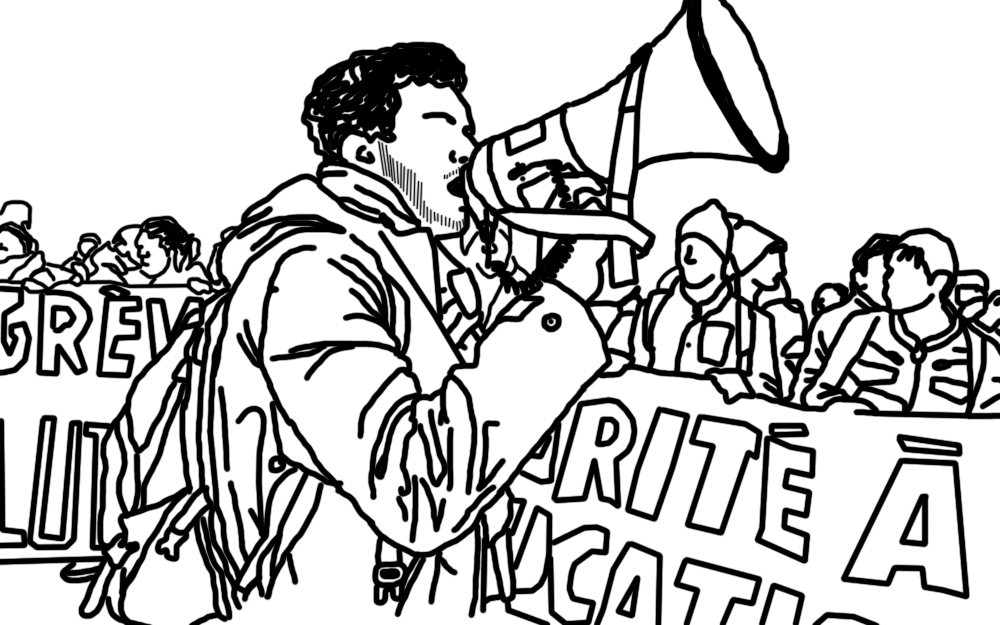This text was initially published in L'Invisible, a publication by the newspaper committee of the Montreal Coalition for Paid Internships.
To answer this question, we must first ask ourselves a seemingly obvious question: what is a salary? A salary is an amount paid in exchange for work. How is the amount of a salary (as well as the minimum wage) calculated? According to the cost of living: it is not the "value" of what we produce that determines our salary, but rather our salary which determines (in part) the price (or the market value) of what is sold.
What is a price? It is the amount a business demands in order to cover the costs, taxes and profits it expects from a sale. Among the costs, there are not only the tools, resources and salaries that go into producing commodities, but also the cost of reproducing labour, which includes the costs of training. Taxes are collected by the various levels of government to ensure reproduction of all that is necessary to maintain the state, its infrastructure and the labour force of the private, public and community sectors. Lastly, profits are collected by business owners, not because they have earned them through their work, but precisely because private property grants them this right: ultimately, profits are the unpaid wages of labour!
Thus, for there to be profits, there must be work that is not paid according to the value it creates. What happens when these profits are threatened? To avoid losing sales, managers avoid raising prices, so they cut wages and benefits. Consequently, workers must live (and work!) with less by making their own cuts. What is the inherent contradiction at work here? By earning less money, workers buy less, and profits are threatened once again! As for companies that pay fair wages to their employees, they usually do so because they are faced with a strong union. In any case, considerable amounts of money are spent in every workplace to ensure that each employee is trained for the job they’re expected to do, long before they produce anything.
What is an internship? Internships are used to observe or explore a profession, and to develop or implement skills. An internship can take many forms, but in general, it is a way to prepare a future employee for their job. It may even involve performing work that is identical to that of a salaried employee.
So, what is a paid internship? It's getting a salary for what is, after all, work: training is not something that is passively received, but something that requires effort and, above all, time. In today's work environment, jobs are continually becoming more specialized and require more training. In fact, internships are already paid in many fields. Unpaid internships are usually found in the care and education sectors (jobs predominantly occupied by women). The fact that we tolerate unpaid internships contributes to the devaluation of these forms of work, which are essential to our collective well-being.
Unpaid internships are the most visible part of the exploitation of students. It doesn’t matter to what degree interns contribute to production: in any case, an internship is not just a pastime, but a job necessary for the reproduction of the workforce and all of its specializations. Students do not fight for paid internships to grant themselves some luxury or gift: they do so precisely because their free labour is an involuntary gift given to businesses and the State.
No more gifts: no pay, no way!
